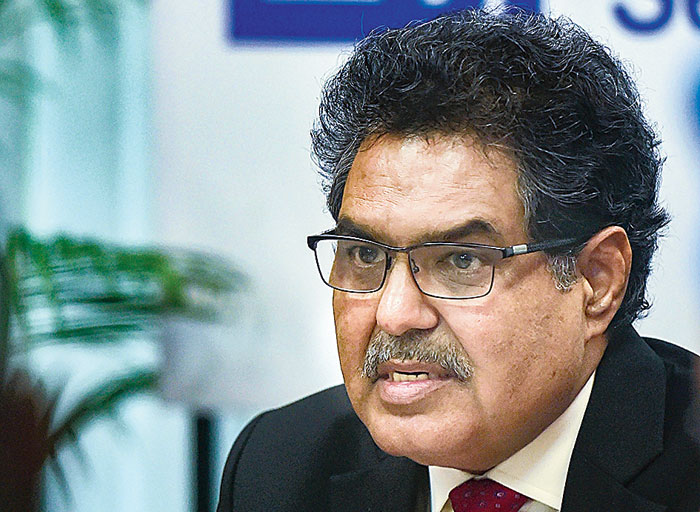The Securities and Exchange Board of India (Sebi) on Wednesday eased the norms on the buyback of shares by listed companies, which will particularly benefit those having a non-banking finance company (NBFC) or a housing finance company (HFC) as subsidiaries.
At its board meeting on Wednesday, the market regulator reviewed the existing mechanism of the repurchase of shares, which is is governed by its Buyback Regulations and the Companies Act.
According to the present rules, the maximum limit of any buyback is 25 per cent of the aggregate paid-up capital and free reserves of the company. Further, the ratio of the aggregate of secured and unsecured debt owed by the company after buyback should not be more than twice the paid-up capital and free reserves unless a higher debt-to-equity ratio is specified under the Companies Act.
While Sebi takes into account financial statements on standalone as well as consolidated basis for evaluating the buyback thresholds, several issues have been raised with regard to considering consolidated financial statements for companies with subsidiaries having a higher debt due to their presence in businesses such as NBFC and housing finance segments.
Sebi’s proposal to amend its regulations also follow a notification by the corporate affairs ministry permitting government companies carrying out non-banking finance and housing finance activities to launch buybacks resulting in up to 6:1 debt to equity ratio post the share repurchase.
After taking into account the feedback to a public consultation process launched in May, Sebi has now proposed to continue with the current approach of allowing buybacks resulting in post-buyback debt-to-equity ratio of up to 2:1, except for companies for which a higher ratio has been notified under the Companies Act, based on both standalone and consolidated basis.
However, if the debt to equity ratio on standalone basis does not exceed 2:1, but exceeds this threshold on consolidated basis, buybacks would still be allowed if the consolidated ratio is up to 2:1 after excluding the subsidiaries that are NBFCs and housing finance companies regulated by the RBI or National Housing Bank. But, the standalone debt to equity ratio of all such excluded subsidiaries should not exceed 6:1, as per the approved norms. Earlier, Sebi had proposed to keep this threshold at 5:1.
Shareholding norms
Sebi chief Ajay Tyagi said various issues needed to be examined before deciding on mandating a 35 per cent minimum public shareholding in listed companies as many PSUs are yet to meet even the 25 per cent threshold.
In the budget, finance minister Nirmala Sitharaman had proposed a 35 per cent minimum public shareholding rule for listed companies.
Tyagi pointed out that though liquidity needed to increase in terms of a better price discovery, more trading and dispersed shareholding, several issues had to be examined in detail.
“We will need to look at the global regulations. What will be the short-term and long-term implications for the companies and for the market,” he said. while adding that currently the IPO market is also not doing very well.










